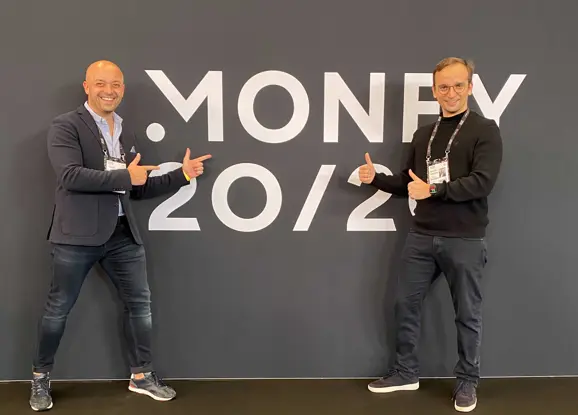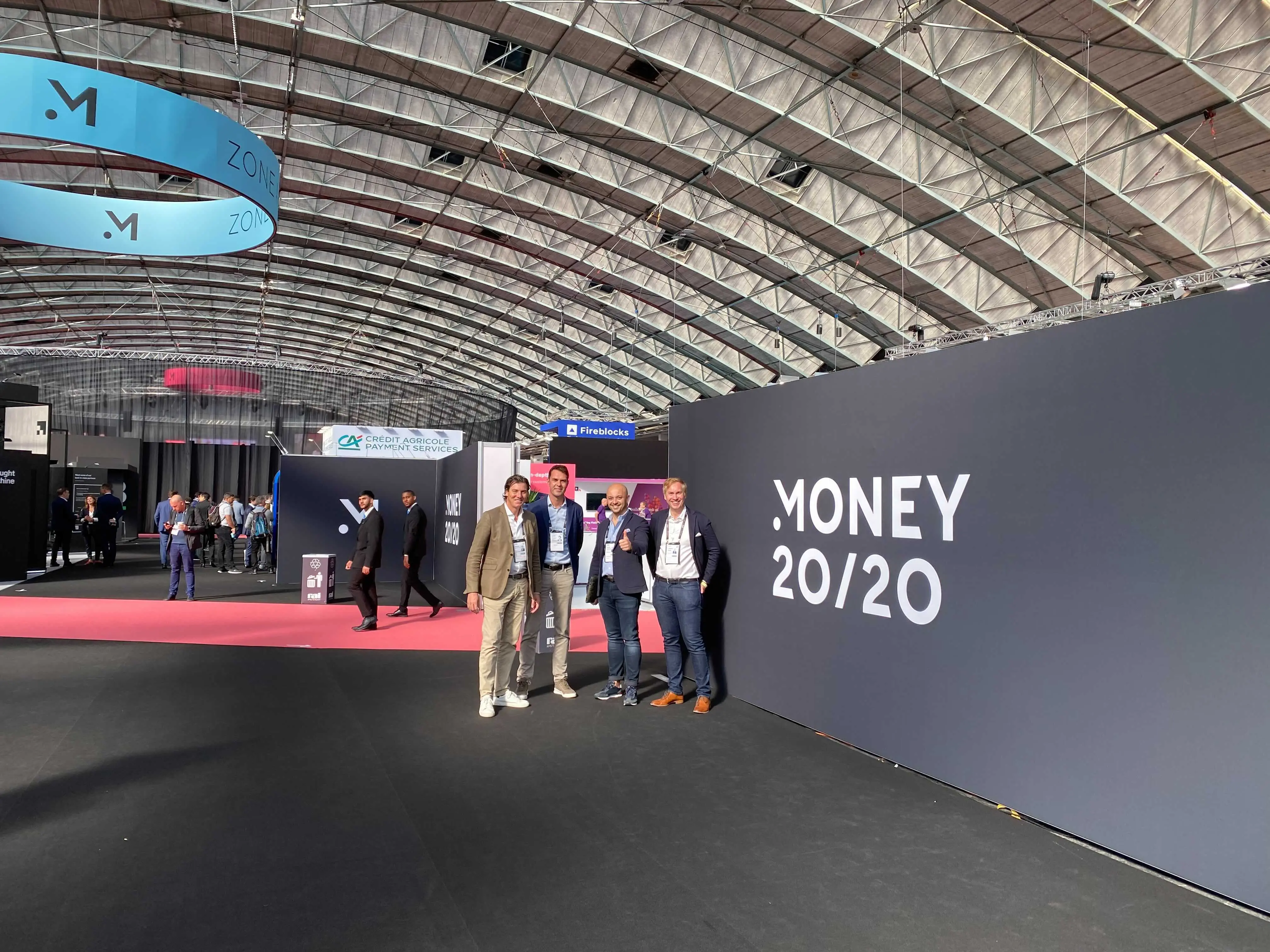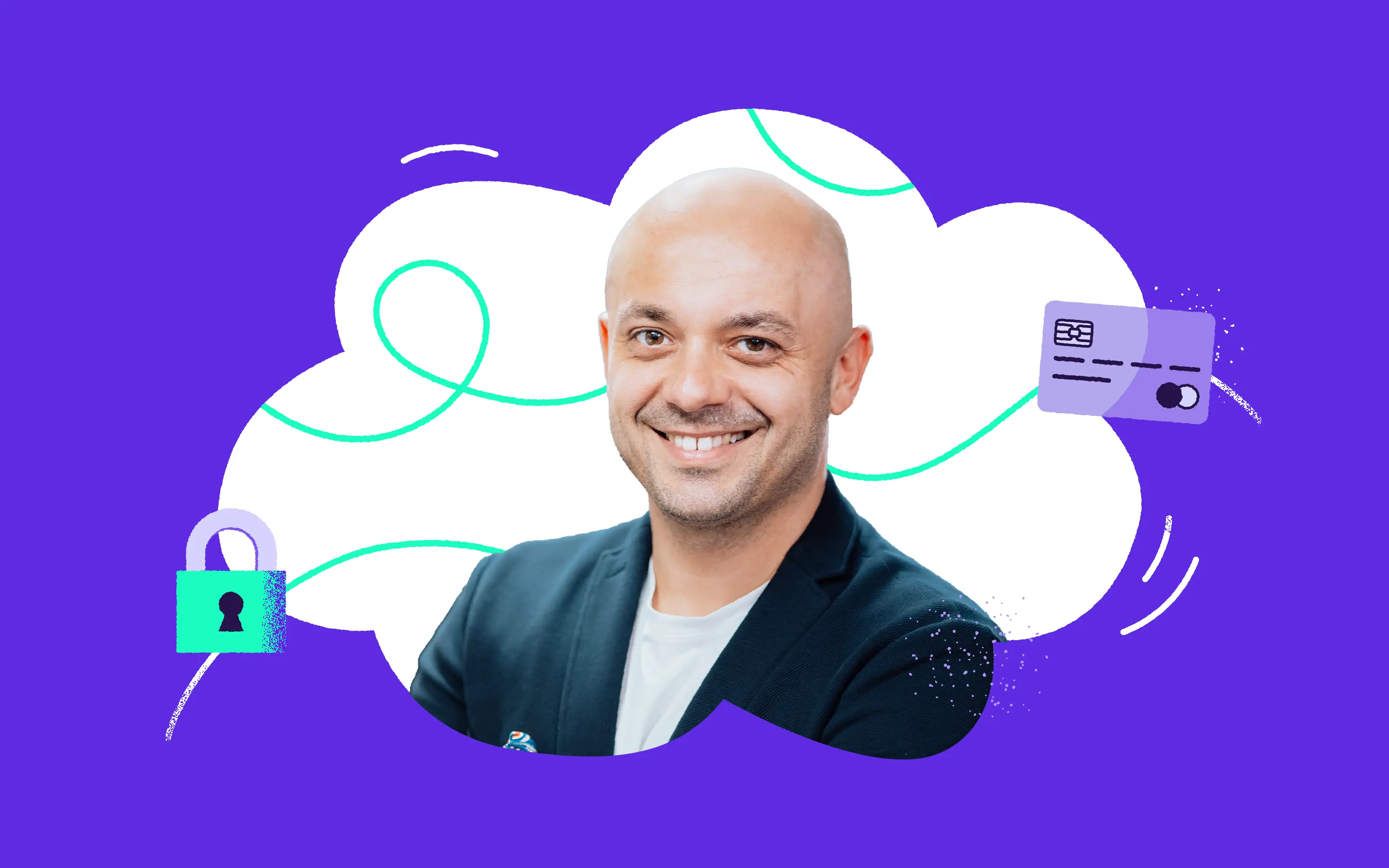State of FinTech and Banking 2021 — Money20/20 Europe
24.09.2021 | 4 min read

Last week we had the pleasure to attend Money 20/20, a three day event in Amsterdam, where the biggest players in the FinTech and Banking spheres got together to connect. There was so much to take in, and so many inspiring leaders and innovators to meet. Below, we give you an overview of just a few of the top things we learnt, offering a useful insight into the future of the industry and what we might expect over the coming few years.
1. A future formed of two types of financial players
In his keynote address, Paolo Bertoluzzo, Chief Executive OFC/GM, Nexi SpA stated that in 10 years’ time there will be two players that will coexist in the world of finance. The first will be multi-country, integrated providers, such as Nexi, with the required scale to produce payment solutions for the masses. The second will be specialised players that cover specific niches, products and services in more targeted markets and which offer services that integrate with those provided by the first players. There is a real benefit in both sides partnering, as they offer different services to overlapping audiences.
2. Environmental Social and Governance (ESG) as a key part of financial institutions
Julia Hoggett, CEO of the London Stock Exchange Group (LSE) spoke with Olga Zoutendijk, board director, Julius Baer Group about her hopes that ESG will become ‘business as usual’ for most financial institutions during the coming decade. Hoggett stressed that the speed of technology tends to outpace regulation, which is designed to protect consumers: “The fact that regulation is technologically enabled doesn’t impact this fundamental purpose. We need to recognise this as part of the evolution of regulation.” She highlighted the need for a positive working relationship between regulators and big tech companies. The discussion should begin by focussing on what is wanted and what is needed, instead of waiting until after the fact to track down and potentially punish those who break the rules.

3. The rapid rise of FinTech opportunities in Africa
Shola Akinlade, Cofounder and CEO of Paystack talked about the rapid rise of his business in the past six years. Starting out as a software developer in Lagos, he never envisaged that his product would reach international markets. Now, he uses it as an example of the real FinTech opportunities that lie in Africa. Y Combinator, which funded his project, provides a small amount of seed funding for startups and it’s seen a record of African startups in its last cohort. Over one billion dollars of investment funding is coming into Africa this year which highlights the real growth potential for FinTech in this part of the world. Shola stressed that apart from funding, African startups are looking for networking opportunities and global partners that could support them with scaling their business.
4. A new approach to managing data
Keith Grose from Plaid, a financial services company specialising in data transfer networks, made an inspiring point about the future of data. Each user of any financial service owns their data - it isn’t owned by banks, FinTechs or any other platforms. That’s why users should be able to manage their data as they please. Open banking has created access to your own data, but the next step is making the data useful to you as an individual and making sure that you’re educated on how you can use it, and how you can give and revoke consent. The future of FinTech is about giving power back to users and to consumers themselves. Data needs to be seen as an empowering capability.

5. The importance of building client-centric products
Yael Barak, VP of Product Management at Checkout.com spoke about the importance of a crawl, walk, run approach to partnerships in FinTech. She advises that it's worth asking yourself whether you have the in-house capabilities to launch your product effectively and if not, who could you partner with to help make it happen? It’s also a case of striking a balance between launching as quickly as possible (and ahead of the competition) or taking a moment to test the market and figure out whether you’re adding actual value to prospective clients. She favours an approach of user testing, iterating quickly and only then releasing when you're ready.



